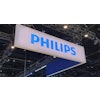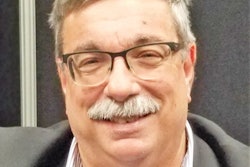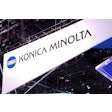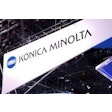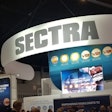
CHICAGO - Anywhere you saw a crowd of people at this year's RSNA meeting, you knew there was a demo or presentation on artificial intelligence (AI). Many vendor booths had references to AI even though they neither offered an AI product nor connected to an AI app. It's almost as though they had a sale on AI stickers at Walmart and nearly every vendor felt obligated to have at least one.
Now, admittedly, there are maybe a handful of serious, viable players in the AI market, but the dozens of others are just there to confuse and confound the rest. When a vendor can tell me that an automated hanging protocol constitutes its AI offering, that's where I need to draw the line.
 Michael J. Cannavo.
Michael J. Cannavo.Despite one company's claim that it has been involved in artificial intelligence for 20 years, in reality AI is a market that's still in its infancy, with just over a dozen apps for clinical indications such as intracranial bleeds and breast, lung, and prostate cancer screening, and a few more approved for use by the U.S. Food and Drug Administration (FDA). That barely touches the surface of AI's full potential, but many more apps will no doubt follow this coming year.
There has even been a group established to advance the adoption and growth of AI. The Society of Artificial Intelligence in Medicine and Healthcare (SAIMAH) has both corporate and individual memberships. The group has a variety of approaches and focus areas within learning systems, multimodality inference engines, and other areas, including virtual reality.
So were the crowds around AI presentations and booths at RSNA 2017 there to learn more about AI? Well, yes -- but if you asked around, two out of three RSNA attendees were more interested in how AI is going to affect their careers than in how they will be able to use the technology as a compliment to their work of interpreting images -- which is what it's being designed for.
Now that comment alone could start a war, as there are many divergent opinions on the effect AI will have, with each side intense in its position about the technology. Go to any of the forums on AuntMinnie.com and you will see this played out in real-time.
What most don't understand, though, is that AI alone has limited value without machine learning (ML). This is tantamount to trying to run an app on a computer without an operating system or driving a car without a steering wheel. ML provides the tools to get to AI and sets up the definition, concept, and examples for AI to expand on.
Stated differently, machine learning provides the foundation for AI -- the who, what, and where -- while AI is the why and how. There were several companies offering ML and deep learning at RSNA 2017 as well, and these need to go hand in hand with AI.
What else was hot at RSNA 2017? Three-dimensional printing and virtual reality (VR) were also big draws. Both cross over into the world of surgical planning, where radiology plays a very important role. Fewer than a handful of players are actually offering commercial VR systems, and I only saw one who showed real-world applications, with the rest simply using it as a draw to their booths to show other products. Still, the interest level is high, with VR promising to be next year's big event.
PACS vendors major and minor alike are still trying to generate interest in their systems, but outside of the replacement market, the PACS market is pretty flat. No, PACS is not dead -- far from it -- and no autopsy is necessary just yet, but it is evolving, just as a marriage evolves after several decades. The role of PACS within a healthcare enterprise is changing, including the need to change from a solution that simply focuses on one standalone to one that encompasses an entire enterprise. This dictates tighter adherence to and quicker adoption of industry standards, especially Integrating the Healthcare Enterprise (IHE). Thankfully, most vendors are cooperating here.
Vendor-neutral archives (VNAs) were shown at RSNA 2017, but they didn't generate nearly the amount of interest or hype as in years past. As with PACS, VNAs are playing a different role in the healthcare environment. Many are being supplanted by cloud-based solutions, but many still require onsite storage with the goal of eliminating the independent silos that have plagued the industry for years. Data migration services are also still needed and will be for quite some time.
The cloud is still generating a lot of interest, but how it is being used varies depending on the provider. Most of the imaging vendors are going with hybrid solutions -- local storage of two years or so onsite and using the cloud as both a disaster recovery solution and for offsite storage for images beyond year 2.
The big three nonimaging vendors -- Google, Amazon, and Microsoft -- are all competing for market share in the imaging, genomics, and clinical systems space, yet only Google had a direct presence at the RSNA show. Google's approach is unique, providing many of the hardware and network components necessary to utilize its cloud solution at the data center level, but still allowing end users the flexibility to use items like their own encryption keys as desired. As expected, security is paramount. The company has yet to experience a HIPAA breach largely due to its continuous breach-testing protocols.
The overall feel of the RSNA show has also changed. International attendance figures won't be officially released until January, but few would question that international attendance was up from last year's figure. Based on the booths seen, the number of first-time exhibitors also seemed to be up significantly as well, with many Asian companies testing the waters with small booths to see if OEM opportunities exist.
And now on to the PACSman Awards ...
The Timmy the Tooth Award
To the company that gave out toothbrushes in its booth. The tie-in with radiology is anyone's guess, but it did bring me back to my youth where Brushbrush, Timmy's toothbrush that acts like a dog and growls when provoked, was Timmy's friend and only Timmy can understand him. Maybe that's it.
The Safe Sox Award
Almost as unique as the toothbrushes were the socks given away by this vendor. The tie-in with cloud storage and disaster recovery escapes me, unless it's to make sure you have safe socks and protect your data at all times.
The Medela Award
The water bottles given away from this vendor were amazingly similar to the look of a Medela breast pump. The top unscrewed, providing you with a glass -- but when on, the top of bottle looked just like the cups on a pump.
The "I've Got That Mary Kay Feelin' " Award
Targeting high-income women with overpriced cosmetics that promise to make you look 10 years younger is brilliant marketing, but there were so many promising "Bye Bye Puffy Eyes" and the like that I felt like I was at a Mary Kay convention.
The Dancing Queen Award
I've seen this company for years, but every time I see its name I still want to see a chorus line of doctors singing ABBA's "Dancing Queen." "You can dance, you can jive, having the time of your life. Ooh, see that girl, watch that scene, diggin' the dancing queen."
The "We're Better Than They Are -- No, That's Us" Award
If you're going to say your product has a 40% better patient experience than another product, make sure the other product isn't yours as well. It just makes me wonder what was wrong with the old one and is a variant of "new and improved." Coke tried that a number of years back, and look where it got them.
The Field of Dreams Award
To the first-time exhibitor that was building its booth at noon on Sunday with parts on the floor like Tinkertoys. I always thought getting booths ready for RSNA was like the TV show "Forged in Fire": "Gentlemen, you have three hours to create a knife. And the clock starts -- now!" I guess not.
The Strunk and White Award
Too many companies to name get this one, but if you are spending the budget of a small third-world country to exhibit at RSNA, at least have your English correct. This isn't directed just at overseas companies either. One of the largest imaging companies in the world was also guilty.
The "To Digitize or Digitalize -- That Is the Question" Award
Technically you can use either word, but 99.97% of the imaging community uses "digitize" because "digitalized" is typically associated with treating a patient with sufficient digitalis drugs to achieve the desired therapeutic effect. Of course, maybe you'll need digitalis after seeing what they have to offer in the PACS arena. Who knows.
The Dr. John Award
To the two companies showing cardiology solutions at a radiology show: "Right Place Wrong Time" -- or is it wrong place, right time? All I know is the last time I checked, very few radiologists were getting invited to cardiologists' Christmas parties.
The Big Mac Award
I've heard of PACS, CPACS, EIS, and others, but never MACS. Did I miss a market opportunity? To the company that used PACS/MACS in its ad, just what is MACS anyway?
The Ready to Rock Award
Great photo of country singer Tim McGraw, but why does he have his belt buckle undone? Why have a belt on at all?
The Captain Kirk Award
To the company that showed a reading station that looked more like it belonged on the bridge of the Starship Enterprise than in a radiology reading room. The three radiologists I sent a photo of this to all asked me incredulously, "Is this for real?" Neat concept, but seriously -- get me semihorizontal and I'm out.
The No Más Award
Roberto Durán isn't the only one saying "no más." To all the companies offering hand sanitizers, pens, chocolates, and the like, please -- no más. Get more creative so I have something to write about next year, will ya?
Observation: The more things change, the more they stay the same ...
And this year's PACSman Award winner is:
The "Wrong Way" Corrigan Award
It's bad enough to see a physician reading plain film in the digital age, but at least don't have him reading it backward. All that was missing for a trifecta of errors was the stethoscope around the radiologist's neck. This is what you get when you hire an ad agency that says it knows healthcare, but it doesn't know radiology.



